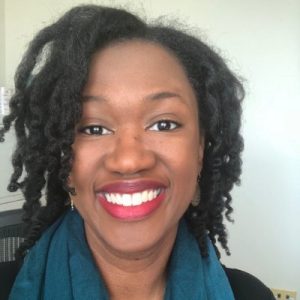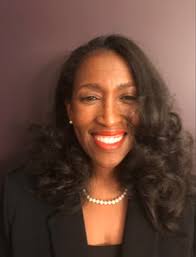Format: Self-paced / asynchronous program
Engage with this recorded program on your schedule.
 CE: 2 CEs total, read for more information on CEs
CE: 2 CEs total, read for more information on CEs
Fee: $35, read for more information on fees and scholarships
Description: The coronavirus pandemic has increased disordered eating and exacerbated eating disorder-related triggers. Healthful eating is more challenging for everyone given disruptions in eat-sleep-activity routines, home/school/work boundaries, social connection and support, and access to healthful outlets, coupled with threats of food scarcity, particularly among the most vulnerable. This workshop will apply an intersectional lens to the factors that increase vulnerability to binge and overeating, and the disparate risk and effects across race, class, gender, and ethnicity. Drawing from their intervention research, the presenters will share strategies for adaptive self-care and coping, awareness of present-moment experiences of hunger and satiety, and decreased reliance on food-based behaviors for distress tolerance.
Trainers:
 Rachel W. Goode, PhD, MPH, LCSW is an Assistant Professor at UNC Chapel Hill School of Social Work. Her research interests include developing, implementing, and evaluating interventions to address racial/ethnic and socioeconomic disparities in obesity and eating disorders. Her research has been funded by the NIH, National Eating Disorders Association, Albert Schweitzer Fellowship, Magee Womens Research Institute, and the University Research Council at UNC-Chapel Hill. Dr. Goode is the principal investigator of a pilot feasibility grant from the Nutrition and Obesity Research Center to reduce binge eating and prevent weight gain in African-American women with overweight and obesity. Additionally, Dr. Goode is a licensed clinical social worker, and has practice experience with the treatment of eating disorders and obesity among clients in university counseling centers, and community-based mental health agencies. She has been fortunate to be the recipient of various awards, including the Oprah Civic Leadership Award, National Health, Lung, Blood Institute (NIH) Research Service Award, and the Outstanding Dissertation Award from the Society of Behavioral Medicine.
Rachel W. Goode, PhD, MPH, LCSW is an Assistant Professor at UNC Chapel Hill School of Social Work. Her research interests include developing, implementing, and evaluating interventions to address racial/ethnic and socioeconomic disparities in obesity and eating disorders. Her research has been funded by the NIH, National Eating Disorders Association, Albert Schweitzer Fellowship, Magee Womens Research Institute, and the University Research Council at UNC-Chapel Hill. Dr. Goode is the principal investigator of a pilot feasibility grant from the Nutrition and Obesity Research Center to reduce binge eating and prevent weight gain in African-American women with overweight and obesity. Additionally, Dr. Goode is a licensed clinical social worker, and has practice experience with the treatment of eating disorders and obesity among clients in university counseling centers, and community-based mental health agencies. She has been fortunate to be the recipient of various awards, including the Oprah Civic Leadership Award, National Health, Lung, Blood Institute (NIH) Research Service Award, and the Outstanding Dissertation Award from the Society of Behavioral Medicine.
 Mazella Fuller, PhD, MSW, LCSW, CEDS-S, is a Clinical Associate on staff at Duke University’s Counseling and Psychological Services(CAPS). Dr. Fuller provides clinical services, consultation, and training for social work and psychology interns. Dr. Fuller has a PhD in Human Services and an MSW from Smith College School For Social Work. She has worked in education for many years as a high school teacher, adjunct instructor, consultant and clinician. Dr Fuller is an Integrative Health Coach and graduate of Duke Integrative Medicine. She also completed the Mindfulness-Based Stress Reduction Program through Duke Integrative Medicine/Duke University Medical Center. Dr. Fuller is a member of the International Association of Eating Disorders Professionals Foundation(iaedp) and Approved Supervisor(CEDS-S) of iaedp. She co-founded the Foundation’s African American Eating Disorders Professionals (AAEDP) Committee and has served on the advisory board for the National Association of Anorexia Nervosa and Associated Disorders(ANAD). Dr. Fuller is also the co-founder of the Institute for Antiracism and Equity. She is also co-editor of Treating black women with eating disorders: A clinician’s guide with Dr. Charlynn Small.
Mazella Fuller, PhD, MSW, LCSW, CEDS-S, is a Clinical Associate on staff at Duke University’s Counseling and Psychological Services(CAPS). Dr. Fuller provides clinical services, consultation, and training for social work and psychology interns. Dr. Fuller has a PhD in Human Services and an MSW from Smith College School For Social Work. She has worked in education for many years as a high school teacher, adjunct instructor, consultant and clinician. Dr Fuller is an Integrative Health Coach and graduate of Duke Integrative Medicine. She also completed the Mindfulness-Based Stress Reduction Program through Duke Integrative Medicine/Duke University Medical Center. Dr. Fuller is a member of the International Association of Eating Disorders Professionals Foundation(iaedp) and Approved Supervisor(CEDS-S) of iaedp. She co-founded the Foundation’s African American Eating Disorders Professionals (AAEDP) Committee and has served on the advisory board for the National Association of Anorexia Nervosa and Associated Disorders(ANAD). Dr. Fuller is also the co-founder of the Institute for Antiracism and Equity. She is also co-editor of Treating black women with eating disorders: A clinician’s guide with Dr. Charlynn Small.
 Charlynn Small, PhD, LCP, CEDS-S is a Assistant Director for Health Promotions at Counseling and Psychological Services (CAPS) at the University of Richmond in Virginia. She received her PhD from Howard University’s School of Education. Dr. Small is a member of the board of directors of the International Association of Eating Disorders Professionals Foundation (iaedp™) and is a certified member and Approved Supervisor (CEDS-S) of iaedp.™ She co-founded the Foundation’s African-American Eating Disorders Professionals Committee and has also served on the advisory board for the National Association of Anorexia Nervosa and Associated Disorders. Dr. Small is co-founder of the Institute for Antiracism and Equity and also co-editor of Treating black women with eating disorders: A clinician’s guide with Dr. Mazella Fuller.
Charlynn Small, PhD, LCP, CEDS-S is a Assistant Director for Health Promotions at Counseling and Psychological Services (CAPS) at the University of Richmond in Virginia. She received her PhD from Howard University’s School of Education. Dr. Small is a member of the board of directors of the International Association of Eating Disorders Professionals Foundation (iaedp™) and is a certified member and Approved Supervisor (CEDS-S) of iaedp.™ She co-founded the Foundation’s African-American Eating Disorders Professionals Committee and has also served on the advisory board for the National Association of Anorexia Nervosa and Associated Disorders. Dr. Small is co-founder of the Institute for Antiracism and Equity and also co-editor of Treating black women with eating disorders: A clinician’s guide with Dr. Mazella Fuller.
References:
- Ciciurkaite, G., & Perry, B. L. (2018). Body weight, perceived weight stigma and mental health among women at the intersection of race/ethnicity and socioeconomic status: Insights from the modified labeling approach.Sociology of Health & Illness, 40(1), 18-37. https://doi.org/10.1111/1467-9566.12619
- Fuller, M., & Small, C. (2020). Treating black women with eating disorders: A clinician’s guide. Milton: Taylor and Francis. https://doi.org/10.4324/9781003011743
- Goode, R. W., Kalarchian, M. A., Craighead, L., Conroy, M. B., Gary-Webb, T., Bennett, E., . . . Burke, L. E. (2020). Perceptions and experiences of appetite awareness training among African-American women who binge eat. Eating and Weight Disorders, 25(2), 275-281. https://doi.org/10.1007/s40519-018-0577-z
- Goode, R. W., Styn, M. A., Mendez, D. D., & Gary-Webb, T. L. (2017). African Americans in standard behavioral treatment for obesity, 2001-2015: What have we learned? Western Journal of Nursing Research, 39(8), 1045-1069. https://doi.org/10.1177/0193945917692115
- Goode, R., Ye, L., Zheng, Y., Ma, Q., Sereika, S. M., & Burke, L. E. (2016). The impact of racial and socioeconomic disparities on binge eating and self-efficacy among adults in a behavioral weight loss trial. Health & Social Work, 41(3), e60-e67. https://doi.org/10.1093/hsw/hlw032
- Rodgers, R. F., Lombardo, C., Cerolini, S., Franko, D. L., Omori, M., Fuller‐Tyszkiewicz, M., . . . Guillaume, S. (2020). The impact of the COVID‐19 pandemic on eating disorder risk and symptoms. The International Journal of Eating Disorders, 53(7), 1166-1170. https://doi.org/10.1002/eat.23318
- Touyz, S., Lacey, H., & Hay, P. (2020). Eating disorders in the time of COVID-19. Journal of Eating Disorders, 8(1), 1-3. https://doi.org/10.1186/s40337-020-00295-3
- van Rensburg, M. (2020). COVID19, the pandemic which may exemplify a need for harm-reduction approaches to eating disorders: A reflection from a person living with an eating disorder. Journal of Eating Disorders, 8(1), 1-3. https://doi.org/10.1186/s40337-020-00306-3
- Waller, G., Pugh, M., Mulkens, S., Moore, E., Mountford, V. A., Carter, J., . . . Smit, V. (2020). Cognitive-behavioral therapy in the time of coronavirus: Clinician tips for working with eating disorders via telehealth when face-to-face meetings are not possible. The International Journal of Eating Disorders, 53(7), 1132-1141. https://doi.org/10.1002/eat.23289